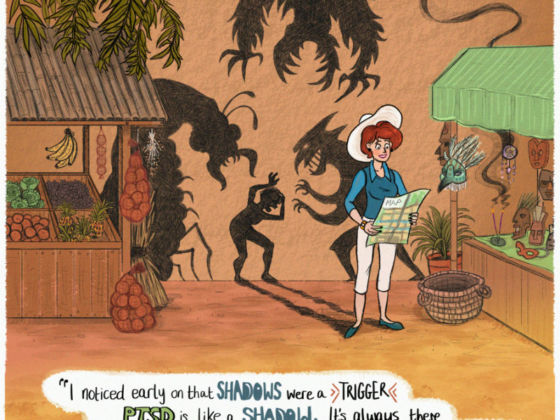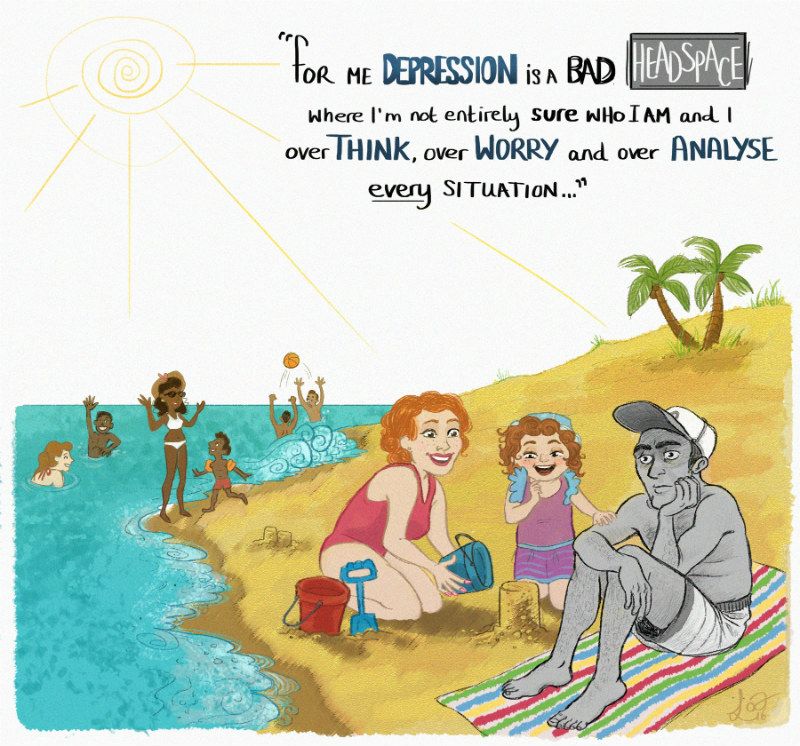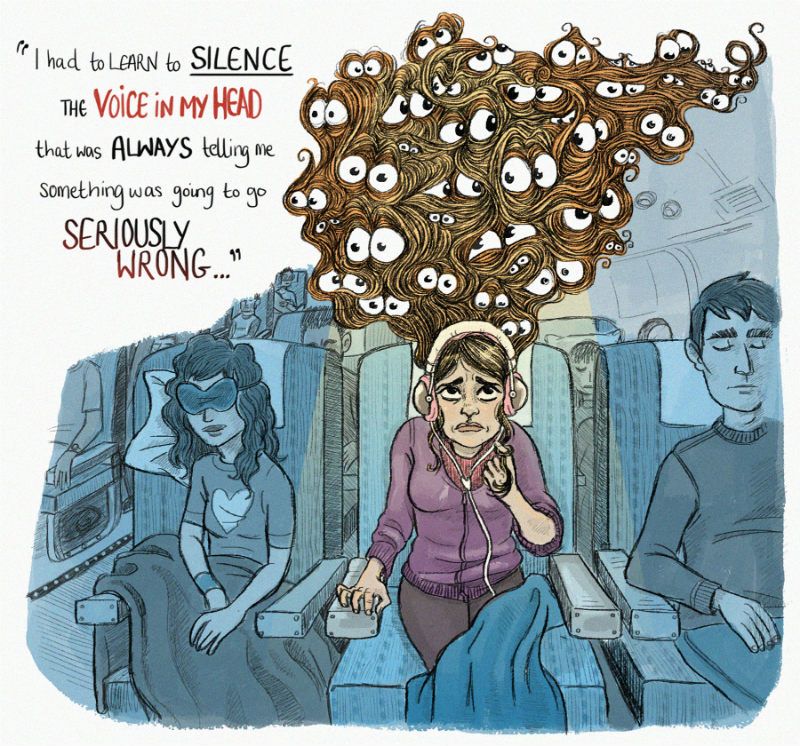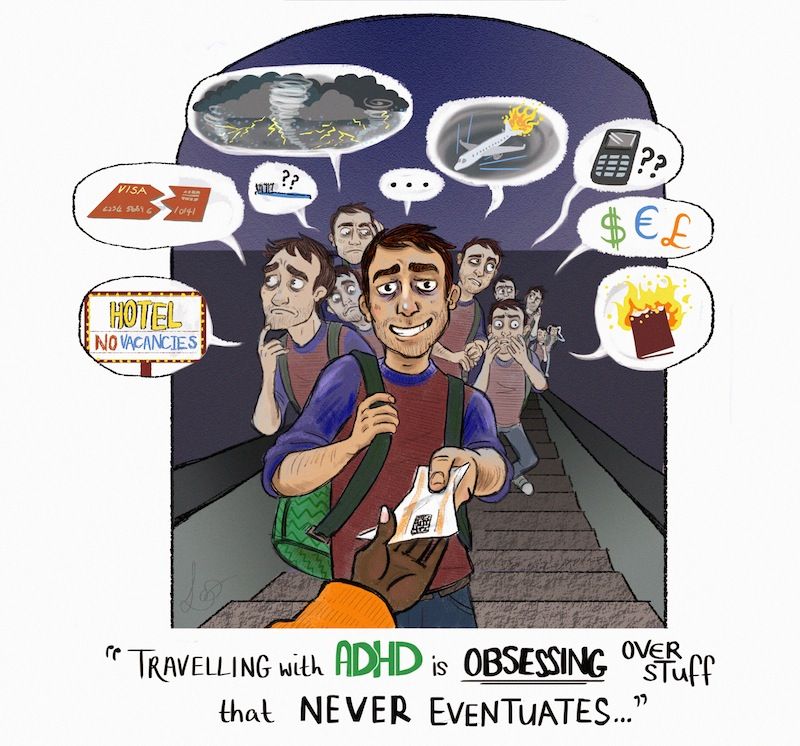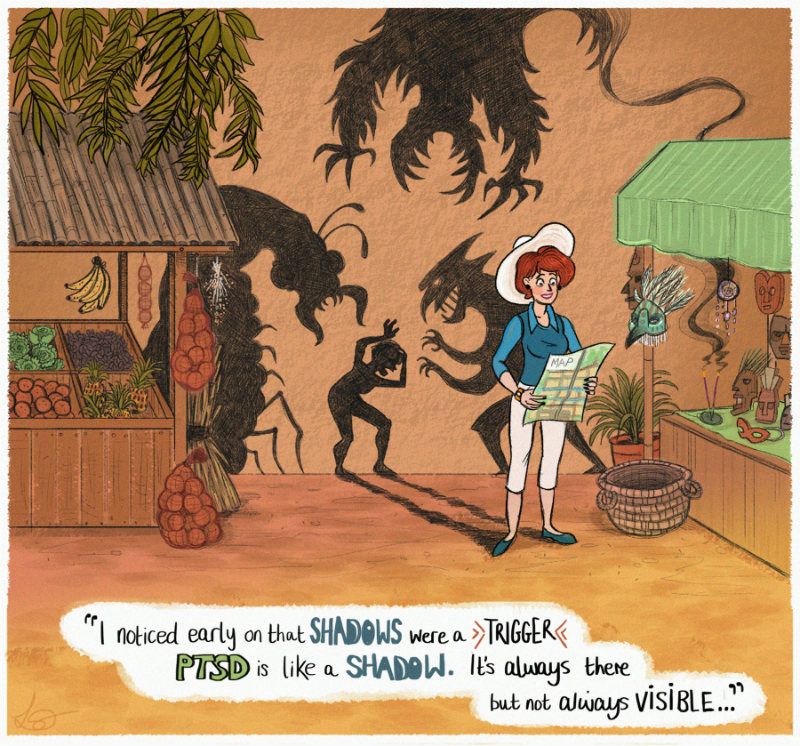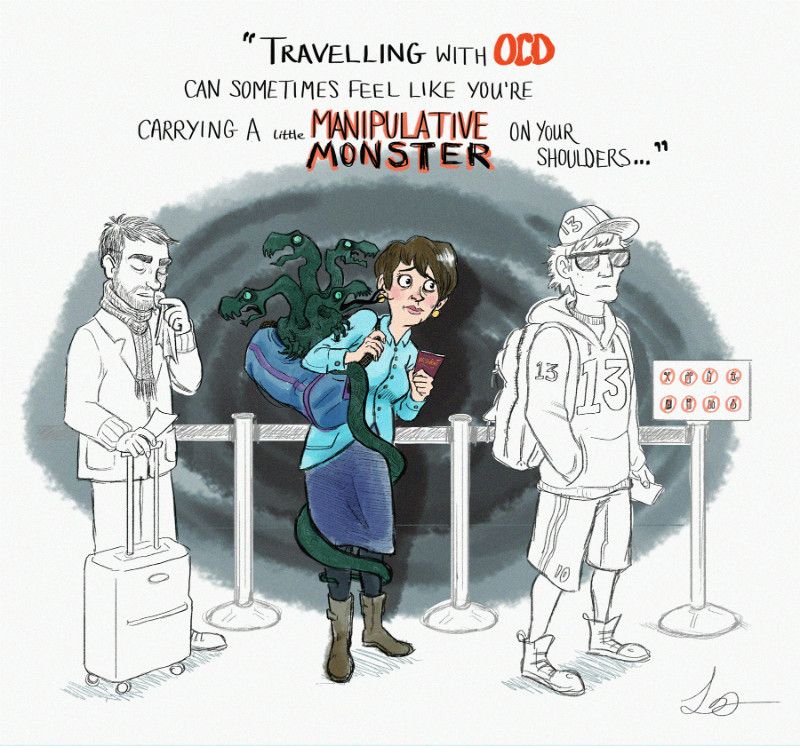GOING ON HOLIDAY CAN be stressful. You’ve got packing to do, accommodation to book, important documents to keep an eye on — the list is endless. For those with a mental illness, these seemingly simple tasks can be a real strain, making something that should be pleasurable — like a holiday — a struggle.
Mental illness is intangible, with most symptoms, sensations, and experiences completely invisible to others. To better understand some of these experiences, we asked people with a range of conditions to describe how they experience and cope with travel.
Artist Loren Conner, who herself has mental health difficulties, then brought the descriptions to life in 5 evocative illustrations.
“Personally, I have always connected with drawing in order to connect with myself, I find slowing down and taking that moment to create can see me through even the toughest of days. No one should feel afraid to embrace or express their thoughts and feelings, it is the most important part of coping with mental health for yourself and others around you.”
